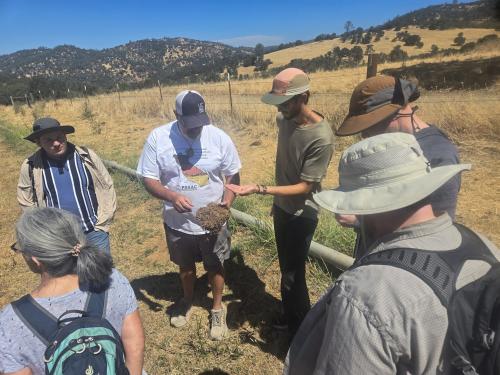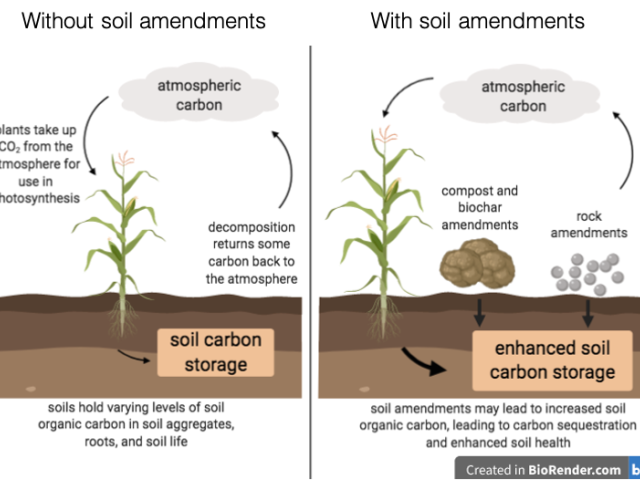Sequestering Carbon
UC Davis is uniquely positioned as a global leader in environmental studies, agriculture, engineering, health sciences, and more. Leveraging our interdisciplinary expertise, the Institute of the Environment is conducting a largest-of-its-kind carbon sequestration project using composts, organic amendments, and minerals to fight climate change and effectively store carbon in and reduce greenhouse-gas emissions from working and fallowed lands.
We accomplish this work by partnering researchers with farmers, ranchers, startups, and Indigenous communities. The initiative builds on the successes of Project Carbon and the California Collaborative for Natural Climate Change Solutions, which is housed in the Institute of the Environment.
Among the exciting new facets of this initiative is the vast potential for enhanced mineral weathering (EMW) to fight climate change. By incorporating finely ground silicate rock, such as olivine or basalt, into agricultural soils, we can accelerate natural weathering processes, remove CO2 from the atmosphere, and permanently store the greenhouse gas as carbonate minerals.
Sequestering carbon is a meaningful component of California's decarbonization portfolio. Successfully scaling this research can also translate to outcomes like healthier soils, cleaner water, more sustainable farmland and rangeland, healthier communities, increased food security, stronger economies, and more.
Your support, our strength. Learn more about Sequestering Carbon from the Sierra to the Sea and how you can help support the initiative by clicking here.

The California Collaborative for Natural Climate Change Solutions (C4NS)
Harnessing Nature: Fortifying Soils While Mitigating Climate Change



